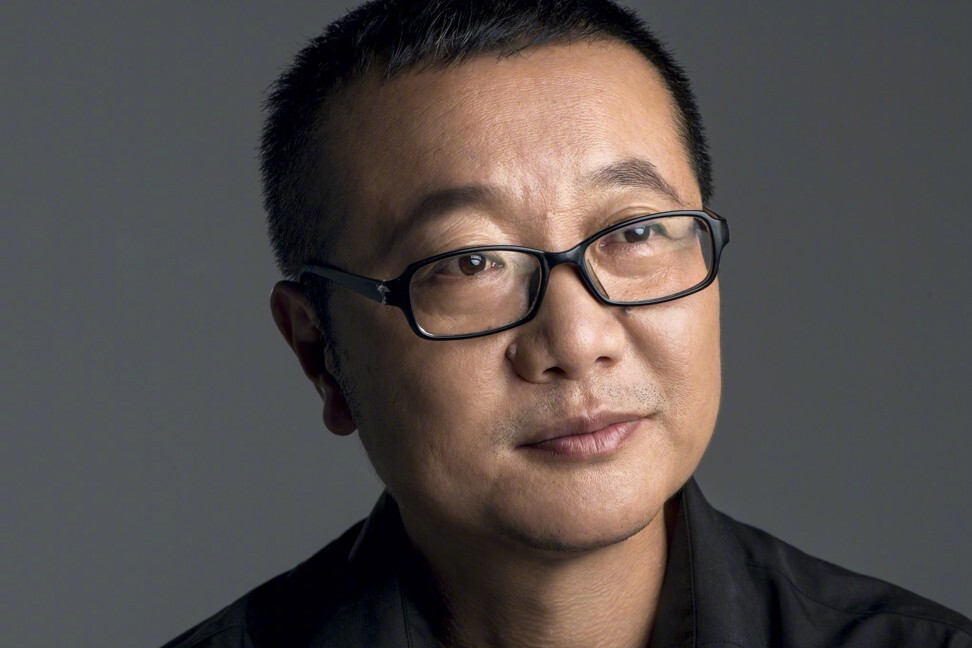
The next The Crown or The Queen’s Gambit? Netflix’s Chinese sci-fi series The Three-Body Problem is sparking hype – and controversy – already
Game of Thrones’ creators are on its production team and Barack Obama, Mark Zuckerberg and George R.R. Martin have all praised the source material – here’s what to expect from Netflix’s much-hyped adaptation of author Liu Cixin’s history-making science fiction novel

Netflix has enjoyed a banner year in 2020. Covid-19 may have severely dented industries such as aviation and F&B, but the streaming platform has enjoyed unprecedented success over the last 12 months. In the first quarter of the year it achieved record-setting growth, pulling in nearly 16 million new subscribers. Its series like Tiger King , Love is Blind and The Queen’s Gambit have been the most-talked about cultural events of the year.
So what’s next? One of Netflix’s biggest shows for the future is an adaptation of Chinese sci-fi novel The Three-Body Problem. Never heard of it? Here’s what you need to know.
The original novel was a history-making award winner all over the globe
Written by Chinese author Liu Cixin, The Three-Body Problem was originally serialised in 2006 and won the Chinese Science Fiction Yinhe Award that same year. It was collected as a book two years later – the first entry in a trilogy, The Remembrance of Earth’s Past.
It wasn’t until 2014 that an English translation of the novel arrived, but it made a huge impact when it did. The Three-Body Problem won the 2015 Hugo Award for best novel, becoming the first-ever Asian novel to win one of science fiction’s top prizes, and was also nominated for the Nebula Award for Best Novel. The novel’s success wasn’t limited to English and Chinese, either. Similarly prestigious awards followed when translations into German and Spanish were released in 2016.
The series is about mankind’s first contact with an alien race
On the surface, The Three-Body Problem’s plot sounds like standard stuff. At its most basic it tells a story of mankind encountering an alien race that’s set to invade Earth centuries in the future after it travels light years across space.
What has appealed to Western readers is a focus on “hard science fiction” concepts like curvature propulsion (a method of light speed travel that involves reducing the speed of light to “drag a ship through space”) and sophons (eleven-dimensional protons) as well as the author’s non-Western perspective on the sci-fi genre.
The New Yorker noted that “for an American reader, one of the pleasures of reading Liu is that his stories draw on entirely different resources,” referencing the aspects of Chinese history, culture and politics that form the centre of The Three-Body Problem.

The book has attracted admirers like Barack Obama and Mark Zuckerberg
As well as numerous awards, the series has also picked up notable celebrity admirers. Former US President Barack Obama is one such fan. In 2017 he described The Three-Body Problem as “wildly imaginative”.
“The scope of it was immense,” Obama told The New York Times. “So that was fun to read, partly because my day-to-day problems with Congress seem fairly petty – not something to worry about. Aliens are about to invade!”
Tech titan Mark Zuckerberg is another fan. He promoted the book on his Facebook book club, A Year of Books, saying it would be “a fun break from all the economics and social science books I’ve read recently”.
Game of Thrones creator George R.R. Martin also read the book as part of his duties as judge for the Hugo Award. The author was more qualified in his praise, writing on his blog, “I liked [it], but I can’t say I loved it.” However, he did stress that he also found it “a unique blend of scientific and philosophical speculation, politics and history, conspiracy theory and cosmology”, and that its “Chinese background is fascinating”.
Game of Thrones’ TV writers are on its Netflix creative team
Speaking of Games of Thrones … Not much is known about the Netflix adaptation yet, but one of the platform’s earliest announcements was that writers and executive producers David Benioff and D.B. Weiss, the co-creators and showrunners of HBO’s Game of Thrones, are part of the creative team. They’re not the only industry heavyweights involved, though. Director Rian Johnson and producing partner Ram Bergman are also on-board and come with plenty of kudos, having directed sci-fi hits like Looper and Star Wars: Episode VIII – The Last Jedi as well as mystery films Knives Out and Brick.
The show is part of a growing Chinese science fiction trend
The Three-Body Problem isn’t Netflix’s first time dabbling in Chinese sci-fi. The company also picked up the rights to The Wandering Earth – also by Liu Cixin – adapting it into a film that was a huge hit in China. The film was released during Spring Festival in 2019 and became the highest-grossing Chinese film on IMAX and the third-highest grossing film in Chinese box office history – earning even more than Avengers: Endgame that same year.
There’s an increasing appreciation for Chinese sci-fi books in the West, too. Ken Liu, the man praised and respected for translating The Three-Body Problem, has edited anthologies like Invisible Planets and Broken Stars that collect some of the best recent Chinese sci-fi short stories. Most recently, Ken Liu has translated Chen Qiufan’s debut novel, Waste Tide, which is about an island-sized waste recycling plant dominated by large electronic recycle industries that exploit their workers.
The show has not been without controversy
For all the positive praise that The Three-Body Problem has received, the series hasn’t been without some degree of controversy. Most of that is related to an interview Liu Cixin gave to The New Yorker in 2019. When discussing the topic of the Chinese government’s treatment of Xinjiang’s Uygur Muslim community and accusations that it detains members in internment camps, Liu Cixin remarked, “Would you rather that they be hacking away at bodies at train stations and schools in terrorist attacks? … If anything, the government is helping their economy and trying to lift them out of poverty.”
Reflecting on these words once Netflix’s adaptation was announced, a group of five Republican US senators called for Netflix to abandon the project entirely. “We have significant concerns with Netflix’s decision to do business with an individual who is parroting dangerous [Chinese Communist Party] propaganda,” the Senators wrote in a letter to Netflix. “We ask Netflix to seriously reconsider the implications of providing a platform to Mr Liu in producing this project.”
In response, Netflix replied: “Mr Liu is the author of the book – The Three-Body Problem – not the creator of this show. We do not agree with his comments, which are entirely unrelated to his book or this Netflix show.”

The show’s release date is still unconfirmed
Despite the hype – good and bad – surrounding Netflix’s announced adaptation and the impressive list of names who will feature on the creative team, the production of The Three-Body Problem is still in its early days. Writers and producers might be signed up, but there have been no casting reveals yet and, crucially, no release date announced. The Covid-19 pandemic has undoubtedly delayed progress, but fans of the books might expect further details next year.